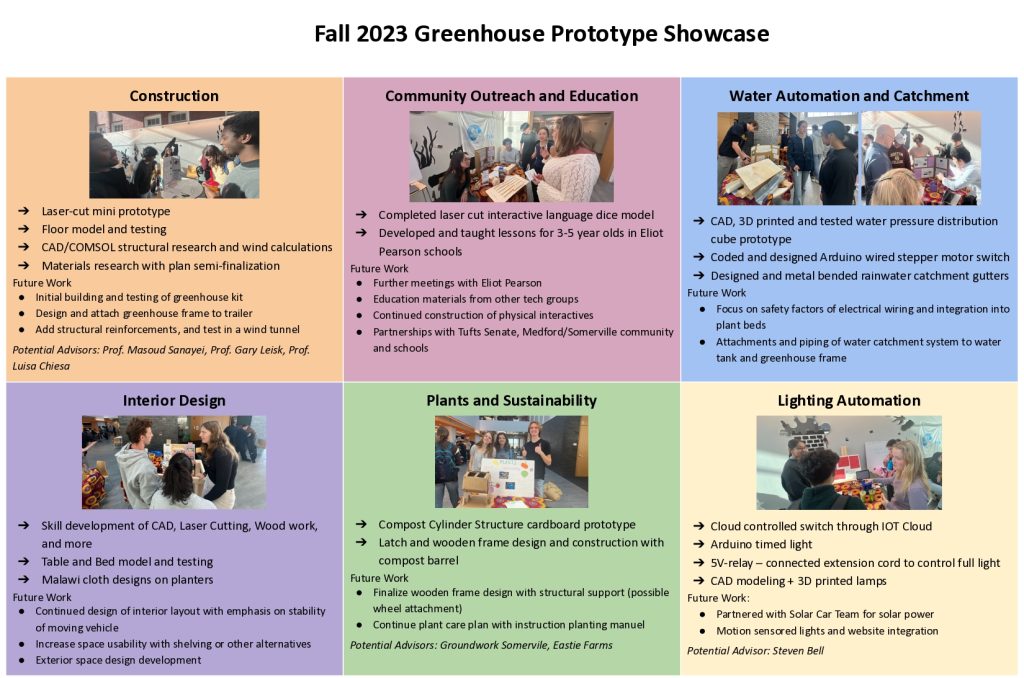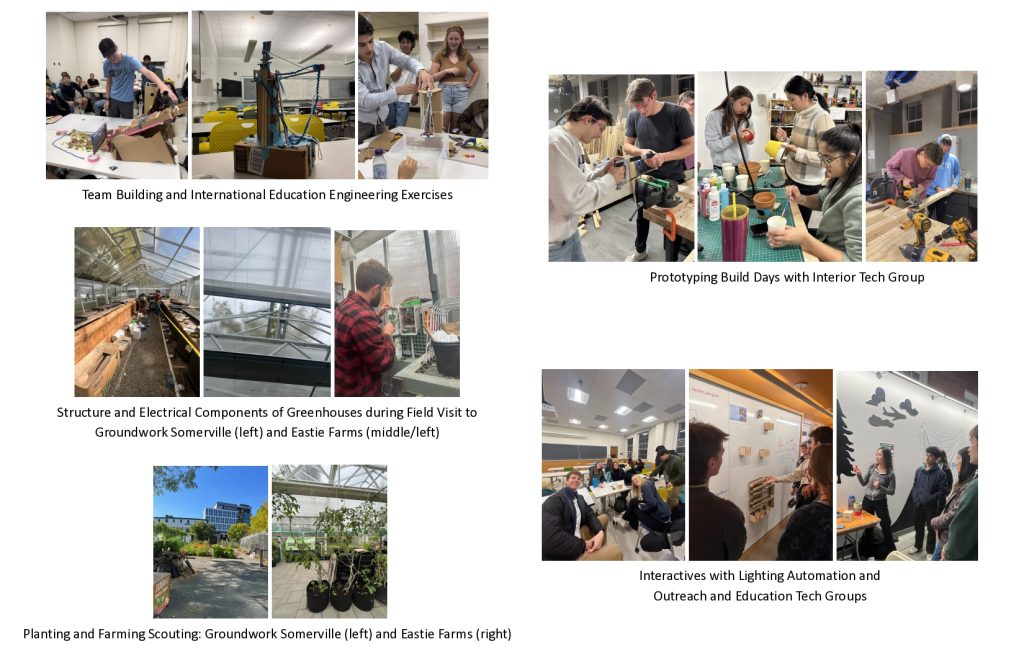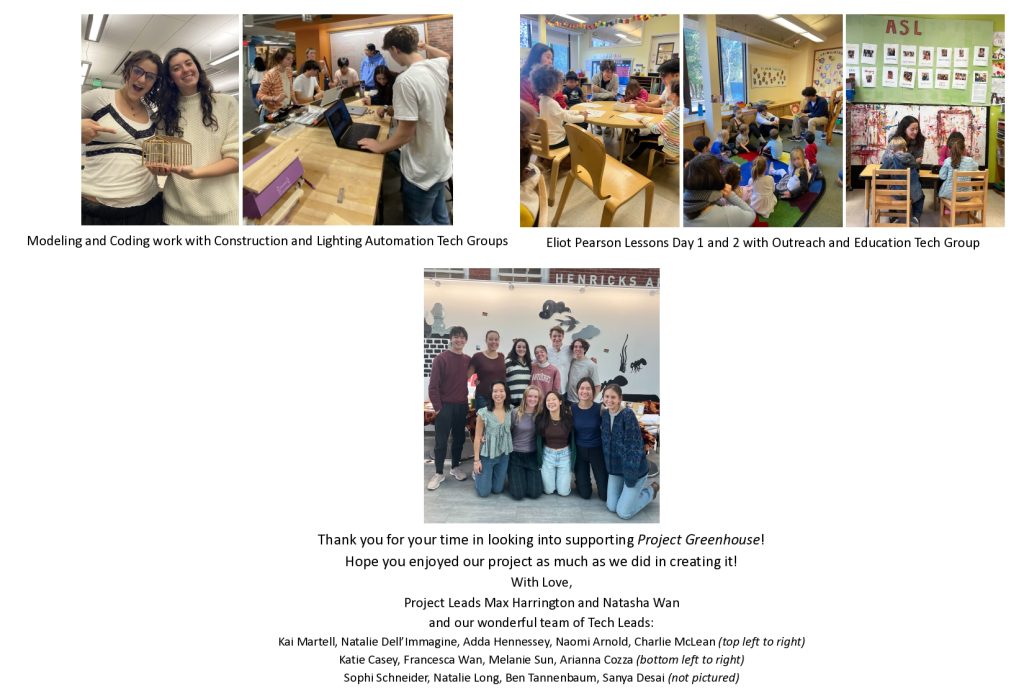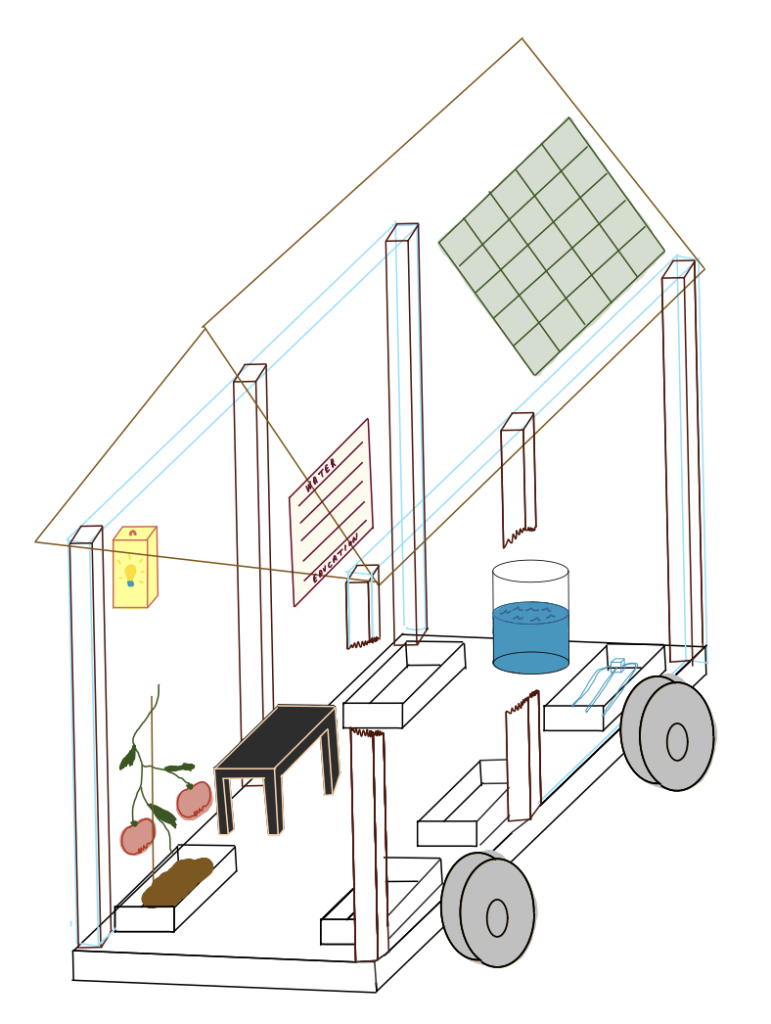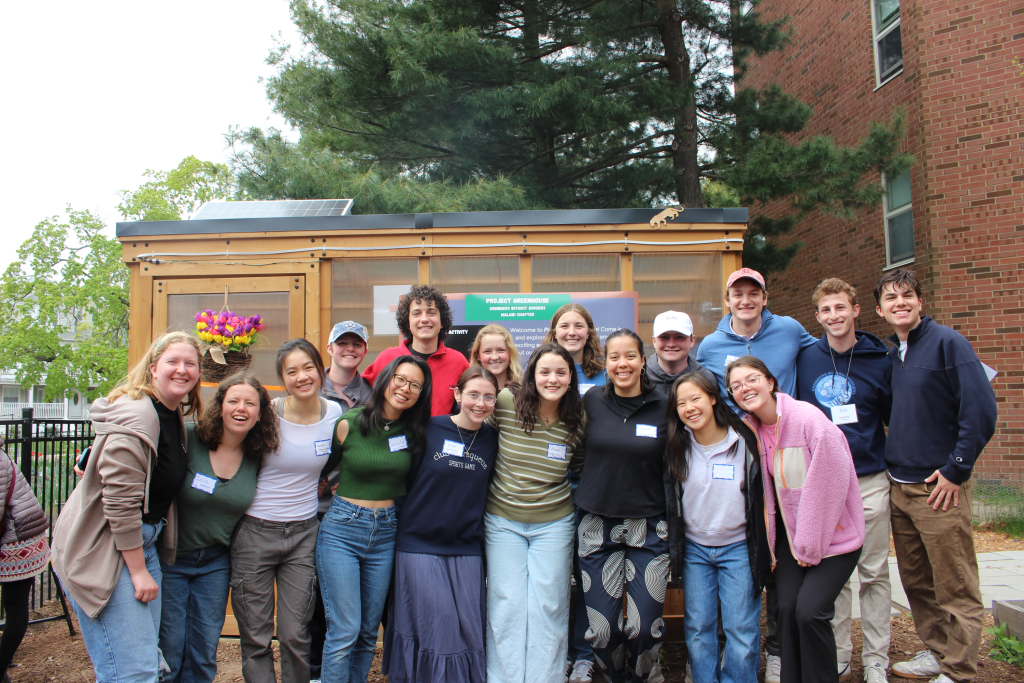At the start of 2023, the Malawi Chapter of Tufts Engineers Without Borders had a happy issue of too many members, but not enough to do. Our project was very internationally focused with a remote implementation. With a project starting in 2017, our clean water-access project has a long history with lots of background knowledge that was hard to explain to new members in a digestible way. Because of this, there was not enough hands-on engineering in our weekly meetings. It was also hard to connect members with our Malawi project and culture.
Furthermore, we wanted to have an on campus space to connect with the greater Tufts community and show off our excitement for EWB. Aligning with the values of Engineers Without Borders, our chapter wanted to focus on a locally based, but internationally focused sustainable, environmentally friendly project.
How can we bring our excitement for hands-on engineering, team based projects, international awareness, while making our campus more green and community focused?
With this project, we will be able to learn how to timeline an engineering project from start to finish, mobilize our tech groups to create something they can see, build, and take ownership for and also teach by doing the different aspects of an engineering project. Our chapter also could take methods of fabrication, design, and prototyping from the classroom into something we could work on and build in our weekly meetings. Skills such as CAD, strength simulations, laser cutting, 3D printing, community surveying, project management, and more could be applied throughout the journey of this project. All these skills learned through Project Greenhouse are the same skills needed for our Malawi Project; Showing and learning it through a smaller and local project, rather than just explaining it, was very beneficial in teaching what an Engineers Without Borders projects are all about.
